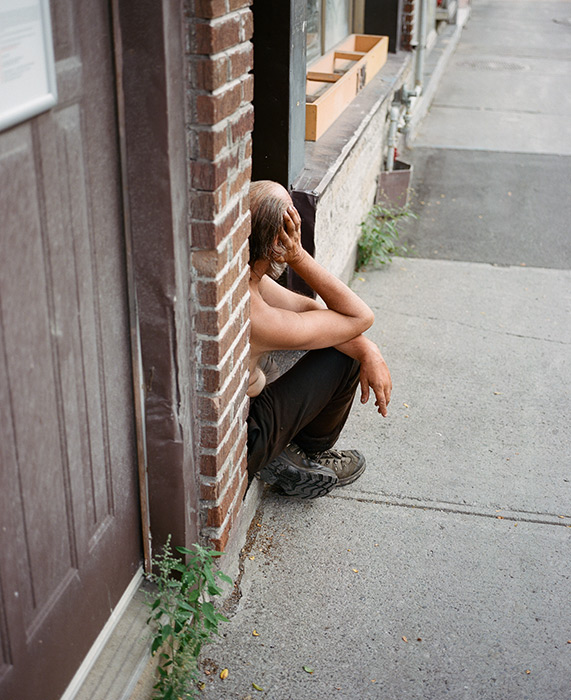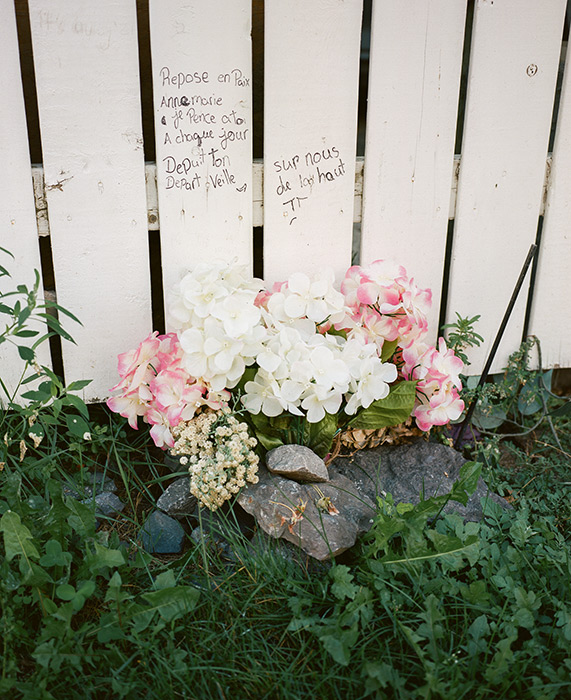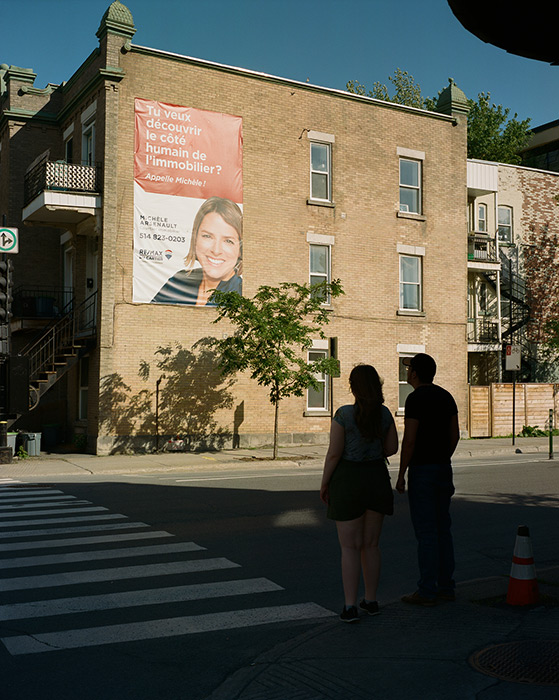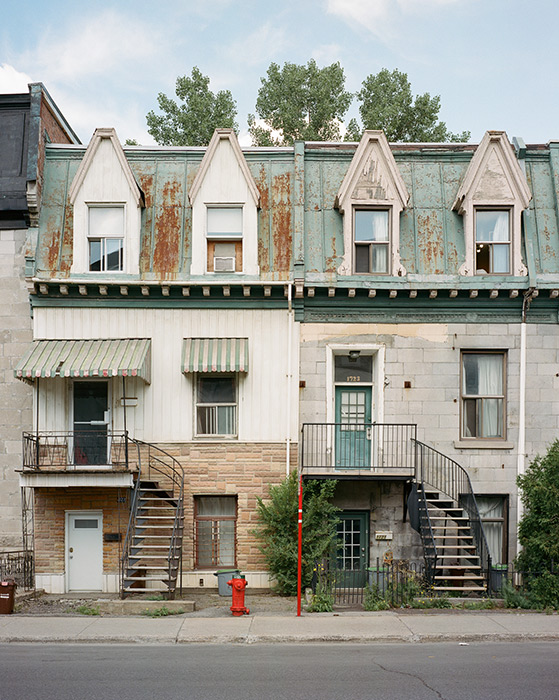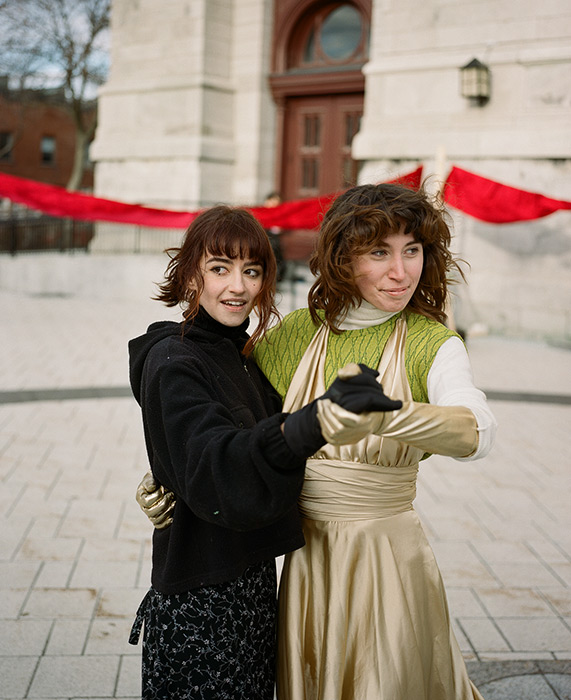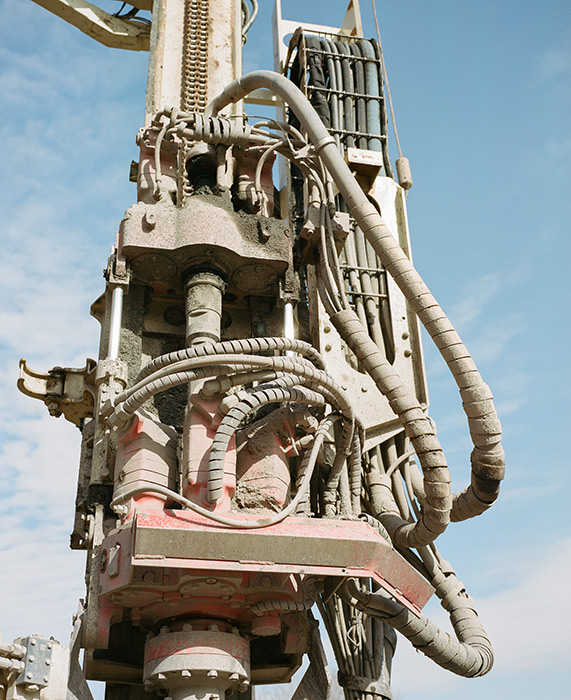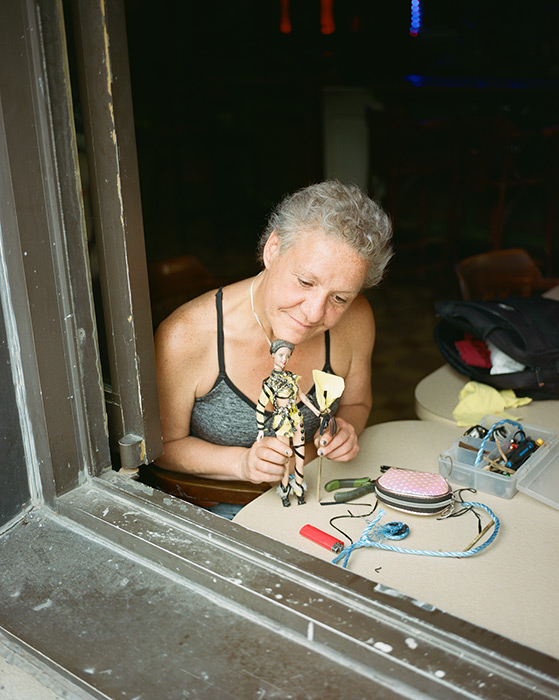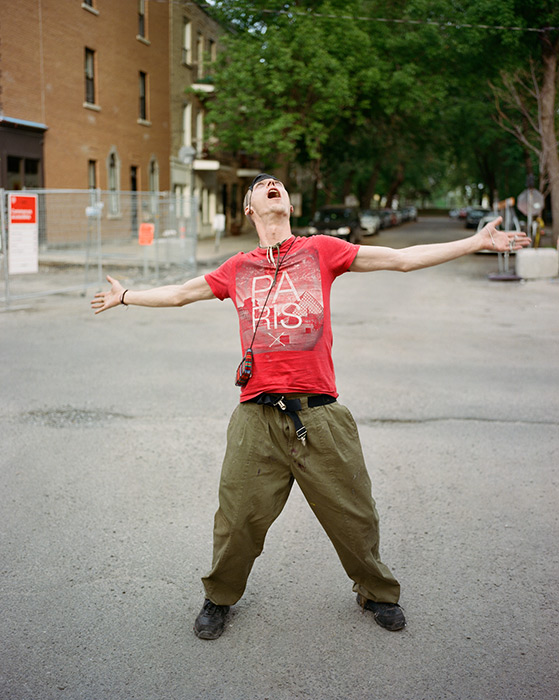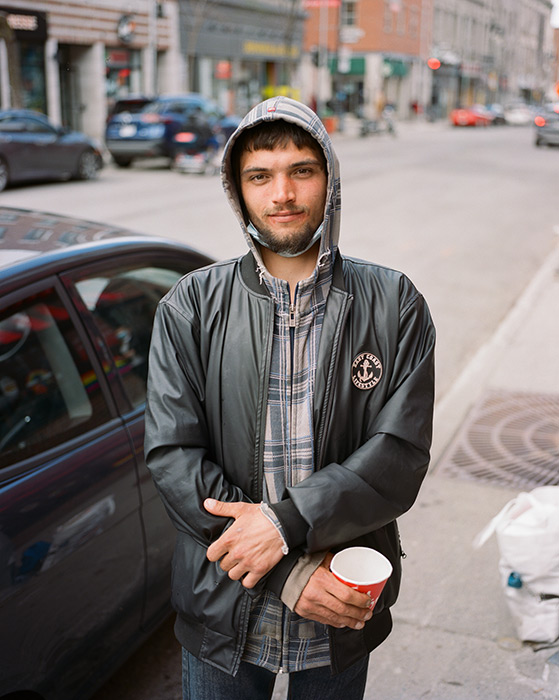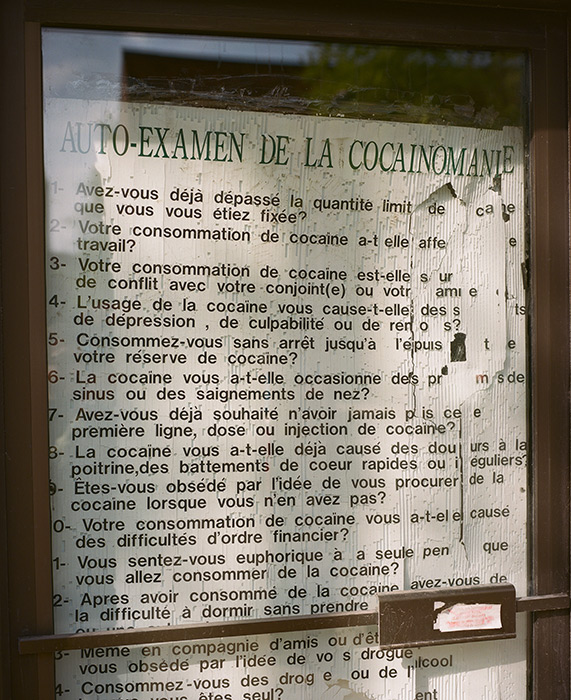[April 11, 2023]
By Jean De Julio-Paquin
In his series untitled En bas de la côte, Jules Gauthier explores, in text and images, the changes taking place in two Montreal districts: Centre-Sud and Hochelaga-Maisonneuve. Experienced with recording on film the effects of deurbanization in American industrial cities, Gauthier turns this time to the sensitive sectors of the city where he lives. The photographs show closed stores, decrepit urban sites, and people experiencing homelessness. They reveal an environment that is poor, neglected, precarious.
Added to this reality are renovictions, which are hitting the local population hard. One of the photographs features two people looking at a large RE/MAX advertisement. The billboard proclaims, “Tu veux découvrir le côté humain de l’immobilier ?” (Do you want to discover the human side of real estate?), to encourage potential buyers to contact the agent. This image on its own summarizes the urban issue in these rapidly gentrifying Montreal neighbourhoods. Gauthier rightly denounces real estate developers’ growing interest in erecting condominium towers while eliminating low-income housing. In a tight close-up, an immense pile driver sinking foundations for a new building becomes a metaphor for the implacable destruction of a living environment. In addition to the effects on human beings, Gauthier dwells on the deterioration of the physical surroundings. Old houses crumble for lack of maintenance which and are headed ineluctably for demolition.
Gauthier also devotes many images to portraits that convey a wide range of emotions, from smiles to depressed gazes at the inhumanity of the world. A mother and her child with Down syndrome pose proudly for him, and two young women gaily dance in a churchyard. Facing desperation, the prospect of a better life seems to be the only possible refuge. Because he uses a 120 mm analogue camera, Gauthier cannot move quickly to take a shot. Stealth gives way to a more sustained attention to the subject photographed.
Gauthier defines himself as a documentary photographer rather than a street photographer. In his view, there is an important distinction between the two. The street photographer, he says in the summary of his approach, tries as much as possible to pass unnoticed, to capture naturally occurring moments on the fly. The documentary photographer highlights more profound issues. Gauthier’s images dealing with social misery and exclusion include a sociological aspect – one that is even critical of the urban space. In this sense, his vision is not neutral; he acts as a consciousness raiser, especially for the social housing issue, mental health problems, and the dismantling of working-class neighbourhoods. Although these are not new themes, the context and current events lend them relevance.
En bas de la côte is the subject of a publication1 that includes texts by eleven poets who have a bond with the neighbourhoods covered. Images and writings ineluctably complement and bounce off each other. For Gauthier, the encounter with literature and the world of publishing offers new possibilities at this point, and he is thinking of publishing more photobooks drawing on previous projects, including his reports from Aleppo, Syria,2 during the civil war, and his series on the decline of Detroit and Baltimore, material from which has been exhibited in Montreal.3 Following this first book, the prospects are encouraging for Gauthier, who is gradually building a body of documentary work that is both significant and personal. Translated by Käthe Roth
2 During his visits in 2015, 2016, and 2017, he took many images, including those on the ravages of the combat on the ancient city’s architecture, which were published by VICE News; see https://www.vice.com/en/article/3kp55k/syria-between-ruin-and-reconstruction.
3 The exhibition L’Autre Amérique (Maison de la culture Claude-Léveillée, 2020) featured the work of four photojournalists concerned with the degradation of living environments throughout North America.
Born in 1992, Jules Gauthier is a Montreal photographer represented by the Hans Lucas agency. In his work, he focuses mainly on the dynamics and issues that affect and transform cities and their inhabitants. His projects taken him to France, Lebanon, Syria, Iraq, the United States, and Quebec, and he has been a contributor to the Huffington Post, Vice News, Radio-Canada, Le Devoir, La Presse, Urbania, La Croix, Iltalehti, University Affairs Magazine, Air Inuit, and Montréal Centre-Ville. julesgauthier.weebly.com
With a master’s degree in art history and a PhD in sociology, Jean De Julio-Paquin is an art critic, exhibition curator, and speaker. He was a member of the first team of cultural officers who worked within Montreal’s Maisons de la culture network. He has taught art history at the college and university levels.

